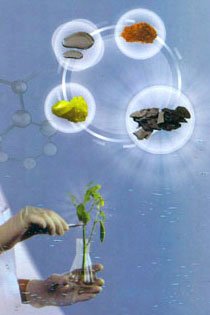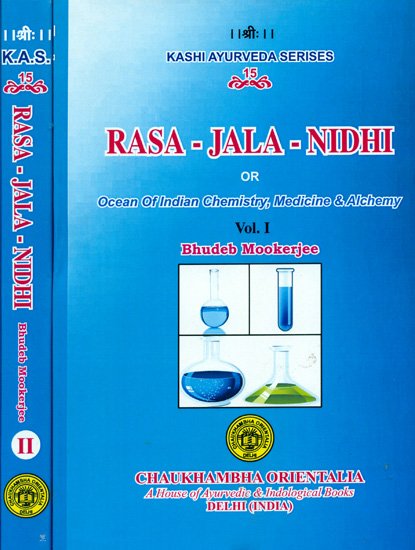Rasa Jala Nidhi, vol 1: Initiation, Mercury and Laboratory
by Bhudeb Mookerjee | 1938 | 67,774 words | ISBN-10: 8170305829 | ISBN-13: 9788170305828
This first volume of the Rasa-jala-nidhi includes preliminary information on Alchemy including initiation of a discpiple, laboratory setup, mercurial operations and commonly used technical terms. The Rasa-jala-nidhi (“the ocean of Iatrochemistry, or, chemical medicine) is a compendium of Sanskrit verses dealing with ancient Indian alchemy and chem...
Part 3 - Etymologial significance of the different names of Mercury
The name Rasa (from root ‘ras’ = to eat), is due to the fact that mercury can swallow every metal, or that mercury is eaten by men with a view to being cured of all diseases. The name Rasendra (from Rasa + Indra, a king) is due to the fact that mercury is the king of all medicines. The name, Suta (from ‘su’ = to give rise to, is due to the fact that mercury is competent to make the body as strong as steel The name, ‘Parada’ (from para = end + da = to give) is due to the fact that mercury causes an end of the suffering of those men who are immersed in the muddy sea of diseases. The name, Jiva (from root, jiv = to live), is due to the fact that mercury helps human beings to live: The name, Mishraka (from mishra = mixed), is due to the fact that the properties of all the metals are found combined in Mercury.
Conclusion:
 This concludes ‘Etymologial significance of the different names of Mercury’ included in Bhudeb Mookerjee Rasa Jala Nidhi, vol 1: Initiation, Mercury and Laboratory. The text includes treatments, recipes and remedies and is categorised as Rasa Shastra: an important branch of Ayurveda that specialises in medicinal/ herbal chemistry, alchemy and mineralogy, for the purpose of prolonging and preserving life.
This concludes ‘Etymologial significance of the different names of Mercury’ included in Bhudeb Mookerjee Rasa Jala Nidhi, vol 1: Initiation, Mercury and Laboratory. The text includes treatments, recipes and remedies and is categorised as Rasa Shastra: an important branch of Ayurveda that specialises in medicinal/ herbal chemistry, alchemy and mineralogy, for the purpose of prolonging and preserving life.
